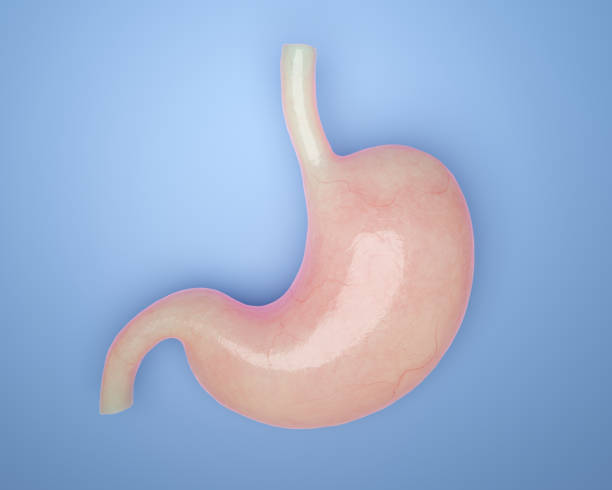Definition and Procedure
Gastric sleeve surgery, also known as sleeve gastrectomy, is a popular weight-loss procedure designed to help individuals manage obesity and its related health conditions. During this minimally invasive surgery, approximately 75-80% of the stomach is removed, leaving a banana-shaped sleeve. This smaller stomach reduces the amount of food a person can eat and helps regulate hunger hormones, promoting weight loss.
Benefits of Gastric Sleeve Surgery
- Significant and sustainable weight loss.
- Improved overall health by reducing risks of diabetes, hypertension, and other obesity-related conditions.
- A minimally invasive procedure with a relatively short recovery period.
Why Consider Gastric Sleeve Surgery in Riyadh?
Advanced Medical Facilities
Riyadh offers some of the most advanced medical facilities in the region. Equipped with state-of-the-art technology, hospitals and surgical centers ensure safe and effective procedures.
Highly Skilled Surgeons
The city is home to experienced bariatric surgeons who specialize in performing gastric sleeve surgeries. Many of these professionals are internationally trained, ensuring high standards of care.
Comprehensive Aftercare
Choosing to undergo gastric sleeve in Riyadh often includes access to comprehensive aftercare services, such as nutrition counseling, support groups, and follow-up appointments, essential for long-term success.
Who is a Candidate for Gastric Sleeve Surgery?
Eligibility Criteria
Not everyone is a candidate for gastric sleeve surgery. It is typically recommended for individuals:
- With a body mass index (BMI) of 40 or higher.
- With a BMI of 35-39.9 accompanied by obesity-related health conditions like diabetes or sleep apnea.
- Who have tried and failed with non-surgical weight-loss methods.
Pre-Surgical Assessment
A thorough medical evaluation, including blood tests and imaging, is required to ensure the surgery is safe for you. Psychological readiness and a commitment to lifestyle changes are also essential factors.
Preparing for Gastric Sleeve Surgery
Pre-Surgery Diet
Adopting a low-calorie, high-protein diet is typically recommended before the procedure. This helps shrink the liver, making the surgery safer and more efficient.
Lifestyle Changes
Successful outcomes depend on more than just the surgery. It’s essential to prepare for long-term changes, including adopting healthier eating habits, exercising regularly, and attending counseling sessions if needed.
Understanding the Risks
Like any surgery, gastric sleeve in Riyadh carries some risks, such as infection, bleeding, or complications related to anesthesia. However, these risks are minimal when performed by skilled surgeons in reputable facilities.
What to Expect During the Procedure
An Overview of the Process
The procedure is usually performed laparoscopically, meaning small incisions are made, and specialized instruments are used. This approach reduces scarring and speeds up recovery.
- Duration: The surgery typically lasts 1-2 hours.
- Hospital Stay: Most patients stay in the hospital for 1-3 days post-surgery for monitoring.
Immediate Post-Surgery Recovery
Post-surgery, patients are placed on a liquid diet for the first few weeks and gradually transition to solid foods under medical guidance. Mild discomfort is expected, but pain management medications are provided.
Life After Gastric Sleeve Surgery
Weight Loss Journey
Most patients lose 50-70% of their excess body weight within the first 12-18 months. Maintaining this weight loss requires dedication to diet and exercise routines.
Dietary Guidelines
- Start with liquids, then progress to soft foods before incorporating solids.
- Focus on nutrient-dense foods and avoid high-calorie, sugary, or fatty options.
- Stay hydrated and consider supplements to prevent nutrient deficiencies.
Emotional and Psychological Impact
Weight-loss surgery can bring significant emotional changes. Many individuals experience improved self-esteem and mental health, but some may face challenges adjusting to their new lifestyle.
Why Post-Surgery Support Matters
Importance of Follow-Up Care
Regular follow-up appointments ensure your recovery is on track and help address any concerns. Your healthcare team will monitor your nutritional intake, physical health, and mental well-being.
Joining Support Groups
Connecting with others who have undergone similar procedures can provide valuable insights, encouragement, and accountability throughout your journey.
Choosing the Right Facility for Gastric Sleeve Surgery in Riyadh
Research Reputable Facilities
Look for accredited hospitals or clinics with positive reviews and a strong reputation for bariatric surgery. Verify the credentials and experience of the surgical team.
Cost Considerations
The cost of gastric sleeve in Riyadh can vary depending on the facility and the services included. Ensure you understand what is covered, including pre-surgery evaluations, the surgery itself, and post-operative care.
Comprehensive Care Packages
Opt for centers that offer holistic care packages, covering not just the procedure but also dietary guidance, psychological support, and long-term follow-up.
Common Myths About Gastric Sleeve Surgery
Myth: It’s the “Easy Way Out”
Reality: Gastric sleeve surgery is a tool, not a shortcut. Success depends on the patient’s commitment to lifestyle changes.
Myth: You’ll Never Gain Weight Again
Reality: While the surgery makes it easier to lose weight, regaining weight is possible if dietary and exercise habits are not maintained.
Myth: The Surgery is Risky
Reality: With modern techniques and skilled surgeons, gastric sleeve surgery is considered safe, with a low complication rate.
Final Thoughts
Choosing gastric sleeve in Riyadh is a life-changing decision that can improve both physical health and quality of life. With the right preparation, support, and commitment, this procedure offers a sustainable path to achieving your weight-loss goals. Take the time to research, consult professionals, and prepare for a journey that goes beyond surgery—it’s about embracing a healthier, happier you.





Comments